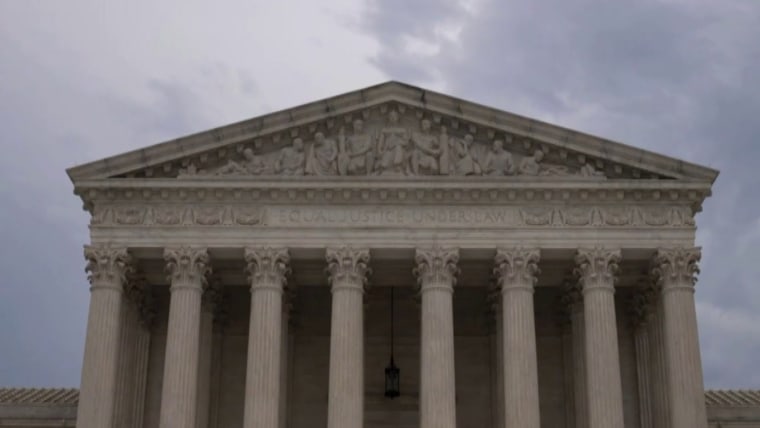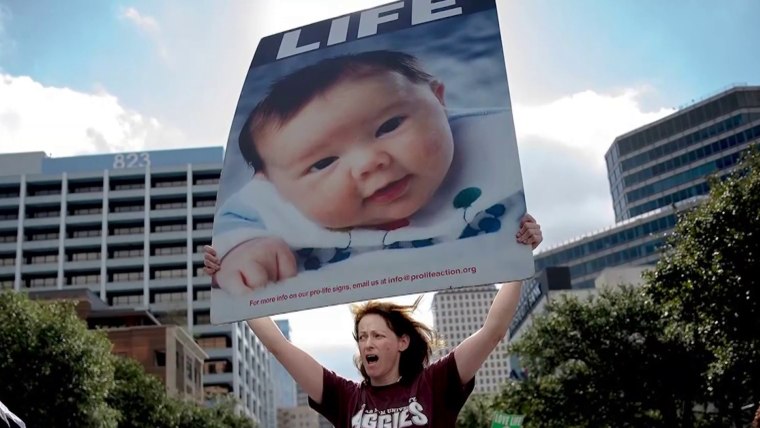Some Texas abortion clinics were already turning patients away even before the state's harsh new abortion law went into effect at midnight.
Since mid-August, all 11 of the Planned Parenthood health centers in Texas that provide abortion services have stopped scheduling visits after Sept. 1 for abortions past six weeks of pregnancy. Planned Parenthood's decision was prompted by a law known as S.B. 8, which bans abortions in Texas as early as six weeks into pregnancy.
The vast majority of people who obtain an abortion in Texas are at least six weeks pregnant. As a result, the law would prohibit nearly all abortions in the state, according to Planned Parenthood and Whole Woman's Health.
But unlike other states' anti-abortion laws, Texas' ban bars state officials from enforcing it and instead allows individuals to sue an abortion provider or anyone who may have helped someone get an abortion after the limit and seek financial damages of at least $10,000 per defendant.

"Without relief, starting tomorrow, 7 million Texas women of reproductive age will lose access to abortion after six weeks of pregnancy, forcing those seeking to end their pregnancy to travel hundreds of miles out of state for their abortion, if they can afford to do so," said Alexis McGill Johnson, the president and CEO of Planned Parenthood Federation of America.
"This unconstitutional law is a full-scale assault on patients, their health care providers and their support systems," she added.
Whole Woman's Health's four clinics in Texas will also comply with the law and prohibit abortion at seven weeks or less depending on the ultrasound results and if cardiac activity is detected. Amy Hagstrom Miller, the president and CEO of Whole Woman's Health and Whole Woman's Health Alliance, said it's "remarkable" that the law was passed and set to go into effect.
"Texans, like everyone else in this country, should be able to count on safe abortion care in their own state. No one should be forced to drive hundreds of miles or be made to continue a pregnancy against their will, yet that's what will happen unless the Supreme Court steps in," Hagstrom Miller said.
The 19th first reported Planned Parenthood's and Whole Woman's Health's moves.
A group of abortion-rights advocates and providers, including Planned Parenthood and the Center for Reproductive Rights, filed an emergency request with the Supreme Court on Monday asking the justices to block the law. The Supreme Court has not weighed in on the case as of publication.
"The American people are eager to humanize our extreme, outdated abortion laws," said Marjorie Dannenfelser, the president of the anti-abortion group Susan B. Anthony List, in a statement. "We stand with Texas and hope that, soon, the Court will finally unshackle all states to protect the most vulnerable among us."
If most or all abortion care in Texas is shut down, the average one-way driving distance to a clinic would increase 20-fold, from 12 miles to 248 miles, according to the Guttmacher Institute, a research organization that studies reproductive health rights.
In April 2020, Texas had temporarily banned abortion care amid the coronavirus pandemic to help preserve hospital space and personal protective equipment for Covid-19 patients. During that time, Planned Parenthood of the Rocky Mountains — which includes clinics in Colorado, New Mexico and Las Vegas — reported a 12-fold increase in the number of patients from Texas. Planned Parenthood of the Rocky Mountains expects a high influx of patients if the new law is implemented.
However, abortion rights advocates warn that not everyone will be able to cross state lines to obtain an abortion due to circumstantial challenges such as not having access to a car or time off work. The University of Texas at Austin's Texas Policy Evaluation Project estimated that, if the law goes into effect, around 80 percent of Texans seeking an abortion would not be able to obtain one in-state.
The ban will also "provide momentum to other conservative states to pass identical laws," said Elizabeth Nash, a state policy analyst at the Guttmacher Institute.
"There are about 20 states that have already enacted comprehensive or early abortion bans, and those states will use Texas as a road map to ban abortion if they can," Nash said.

